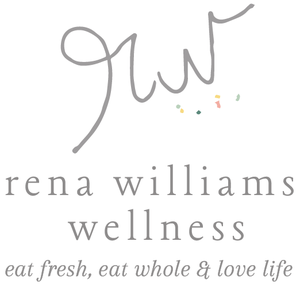Depression is the result of chronic inflammation. It’s creating an inflammatory response in our body that's affecting our nervous system. Just like inflammation can cause us to feel pain in our joints, muscles or digestive system, it can also affect our brain and ultimately influence our mood.
What Causes Inflammation?
In an earlier post, I spoke about how the stories we make up largely influence our mood and the way we feel. Our thoughts alone can create an inflammatory response in the body. Combine these stories with other pro-inflammatory factors such as our environment, physical or emotional trauma, poor diet or eating habits, lack of exercise, weak or compromised gut health, lack of or poor sleep and nutrient deficiencies and inflammation gets exacerbated.
This leaves your body out of balance and you feel unwell and unlike your regular self.
Turmeric's Positive Influence on Depression
For countless years, turmeric has been used in both Ayurveda and tradition Chinese medicine. This pungent spice boasts incredible anti-inflammatory and anti-oxidant properties. Studies show that people with depression have higher levels of inflammation and free radical damage. Turmeric, specifically the curcumin in turmeric, helps counteract this.
There have been recent studies in the Western world measuring the effects of using turmeric in depression with positive results. One of the reasons for its effectiveness is that curcumin helps modulate the release of serotonin and dopamine. It also inhibits the release of certain enzymes that can break down these neurotransmitters.
Paying attention to subtle ways to support your mental health through food and nourishment can make a difference and influence how you feel and show up in your day. Whether it be in soups, stews, curries or teas, turmeric can be easy to incorporate in your day to day. I’m sharing an example with you with this simple recipe below.
Keep in mind when working with turmeric that black pepper, specifically the piperine compound in black pepper, is the key supporting ingredient. It dramatically increases the absorbability of turmeric.
Turmeric Spice Latte
serves 1
1 cup hot water or nut milk
1 Tbsp Spiced Pumpkin Puree (recipe below)
honey (optional)
How to:
- Mix nut milk and pumpkin puree together, adjusting to taste with honey
- Enjoy
Spiced Pumpkin Puree
makes about 1 1/2 cups
1 1/2 cups pumpkin puree
2 Tbsp freshly grated ginger
2 Tbsp honey
1 Tbsp coconut oil or grassfed butter
1/2 Tbsp turmeric, ground (or 1 to 2 1-inch knobs of fresh turmeric, finely chopped)
1 tsp cinnamon
1/2 tsp cloves, ground
1/2 tsp nutmeg, ground
1/2 tsp allspice, ground
generous grinding of black pepper
pinch of salt
How to:
- Add all ingredients to a high-powered blender. Mix on high for about 1-2 minutes until smooth consistency.
- Alternatively, you can make this in a small saucepan on the stove. In this case, I’d use ground turmeric.
- Store cooled puree in an airtight container in the fridge. Will keep for about 5 days.
Now I'd love to hear from you. Share with me in the comments below, one of your favourite ways to enjoy turmeric.
Sources:
Kulkarni, S.K., Dhir, A. An Overview of Curcumin in Neurological Disorders. Indian Journal of Pharmaceutical Sciences, 2010 Mar-Apr
Lopresti, AL, Maes, M, Maker, GL, et al. Curcumin for the treatment of major depression: a randomized, double-blind, placebo controlled study. J Affect Disord. 2014


